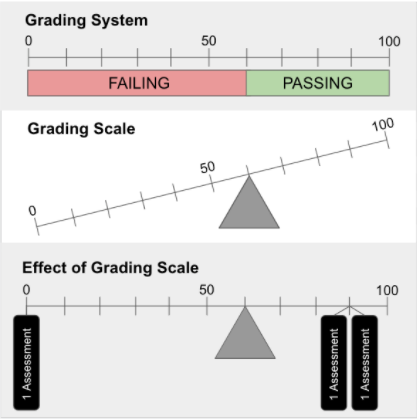
Professional learning in most schools rarely meets the needs of educators. It's one-size-fits all with maybe a sprinkling of teacher ownership thrown in to check the "teacher-driven" box. That's not cutting it. It never will. It's past time for something better.
A thread...
1/
A thread...
1/
To start with, it often misses the mark because no one can clearly articulate what the mark is. What is the vision of meaningful, high-quality teaching and learning at the school? I'm not talking about the stupid evaluation rubric. I'm talking about an energy-filled, ...
2/
2/
concise, and student-focused description of what teaching and learning could be. How do you know if you have that? When you read it and can feel it on an emotional level. I should be excited after reading that, and that's what needs to drive PD. Sadly, doesn't happen often.
3/
3/
Second, it should be driven by a teacher-selected long-term goal. No, I'm not talking about your evaluation SMART goal. Again, box-checking, at least in most of what I've seen. Use the vision, and let teachers identify an element of that vision that excites them.
4/
4/
Why does this matter? Well, it helps avoid the one-and-done PD approach that happens too often in schools. It gives a focus and room for growth, reflection, ownership, and just as importantly, collaboration. By selecting a focus, teachers can form meaningful PLCs outside...
5/
5/
The content area PLCs that, again, often turn into box-checking exercises where everyone talks about what they're doing and no one learns in the process. Teams formed around self-selected instructional elements usually result in more learning than teams grouped by necessity.
6/
6/
Now, this gets to the third point. Dedicated time for learning needs to be embedded regularly. Now, I'm not talking PD days. I mean that if you have four PLCs per month, use one of them for these self-selected teams. It's frequent, repeated. It's dedicated to the...
7/
7/
Not urgent but wildly important elements of big picture teaching and learning that often gets pushed to the side because we, as a system, are terrible about allowing the urgent and "important" (read: busywork of teaching) take over spaces not designated for something else.
8/
8/
Again, the goal is that this time isn't an infrequent, isolated thing. It's woven into PLCs. It's a lunch and learn once a month where teachers get free food and talk about their learning. It's a group chat focused on a goal where people share resources and reflect.
9/
9/
The big question in terms of time is this: How are we created frequent informal spaces dedicated to learning and growth where ideas can be shared? That's absolutely crucial in the learning process.
10/
10/
Fourth, we need to use this time to model how we want learning to happen in our classrooms. Is direct instruction valuable here? (Trainer-led workshop) Absolutely! But too often we use that model exclusively, and as a result, we end up with all sit and get PD.
11/
11/
If we're creating this informal space for ideas to develop, how are we supporting teachers in pursuing their own learning? More importantly, how are we creating intentional time for this learning. Often, this type of learning is pushed to the side or viewed as extra.
12/
12/
We need to be providing time for teachers to read articles they find on the internet, browse Twitter for new ideas, read a book about pedagogy, etc. Don't make all that something that teachers have to do on their own time. That's how you end up with silos of innovation...
13/
13/
and growth, with an undue burden placed on the teachers who want to improve their practice, as they have to take their own personal time to grow and learn (after the irrelevant, mandated, sit-and-get PD). Everyone should have dedicated time to explore something that...
14/
14/
matters to them. Now, this always gets met with, "Well, what about the teachers that just waste that time?" First off, I'm a firm believer that if you give someone ownership over something they're excited about, "accountability" isn't an issue. It's only an issue...
15/
15/
When you're forcing someone to do something they don't see value in doing. Second, this is where the teams come in. If people are given time to pursue things that matter to them and then time to reflect and implement ideas as a team, that is "accountability" enough.
16/
16/
Here's the summary:
1) Leaders, facilitate creating a vision of teaching and learning that excites people.
2) Let teachers choose goals based on things they're passionate about.
3) Create intentional time for informal exploration.
4) Allow teams to reflect and grow.
17/17
1) Leaders, facilitate creating a vision of teaching and learning that excites people.
2) Let teachers choose goals based on things they're passionate about.
3) Create intentional time for informal exploration.
4) Allow teams to reflect and grow.
17/17
• • •
Missing some Tweet in this thread? You can try to
force a refresh




